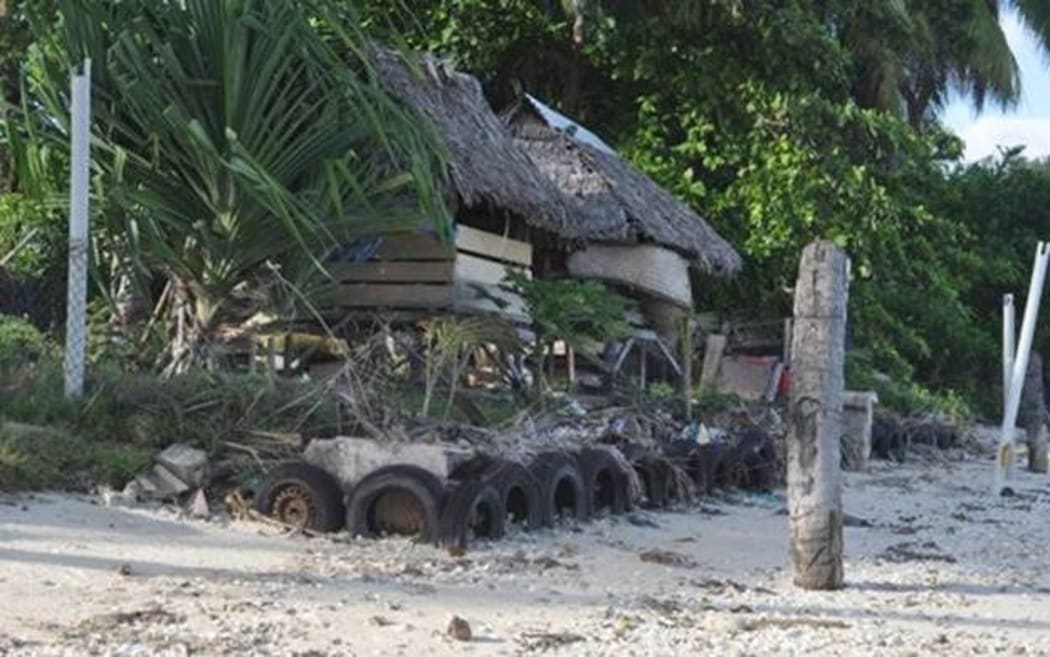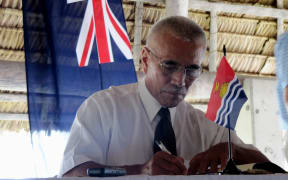Academic researchers are investigating the practicality of Kiribati purchasing land in Fiji as a climate change mitigation and adaptation strategy.

A seawall protecting a home from coastal erosion in Kiribati Photo: UNDP / Sheryl Ho
The land in question is a 2,210 hectare property at Natoavatu Estate on Vanua Levu, Fiji's second biggest island.
It was purchased by former president Anote Tong in 2014, in what he described as a bid to enhance the economic and social resilience of Kiribati in the face of climate change.
But a North Carolina geography and development student James Ellsmoor, who recently paid a visit to the plot of land, says it is very remote with inhospitable hilly, swampy terrain.
He says the land already has a community of displaced people living on it.
"I question whether the land was ever intended to hold population or whether the land was actually bought just as a statement. It will be very interesting to see in the coming years what happens, whether the new president will decide to do something with this land or it will remain stagnant."
Mr Ellsmoor says the welfare of the community of about 500 ethnic Solomon Islanders living on the land who are descendants of colonial slaves kidnapped to work on Fiji's sugar plantations is also a concern, as they have no land rights elsewhere in the country.



